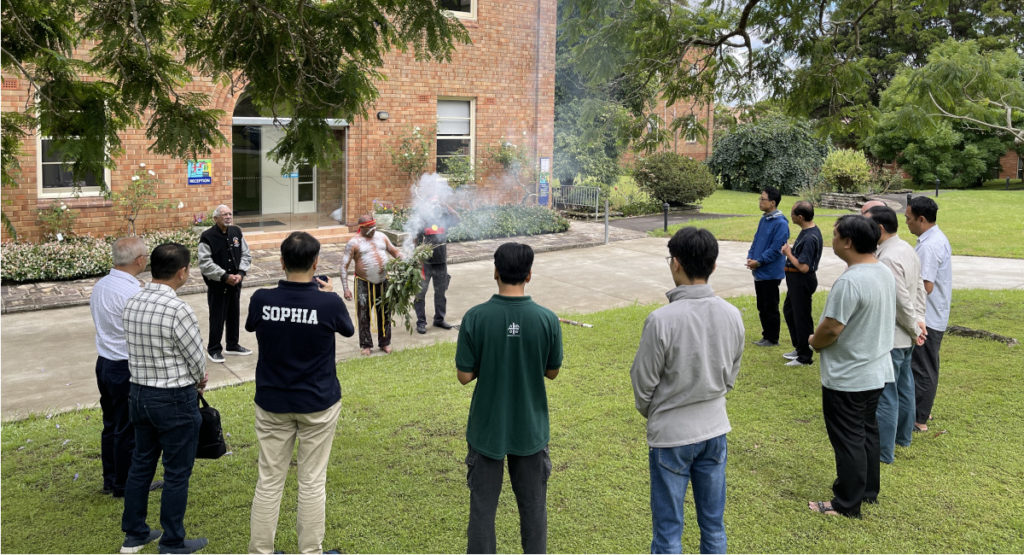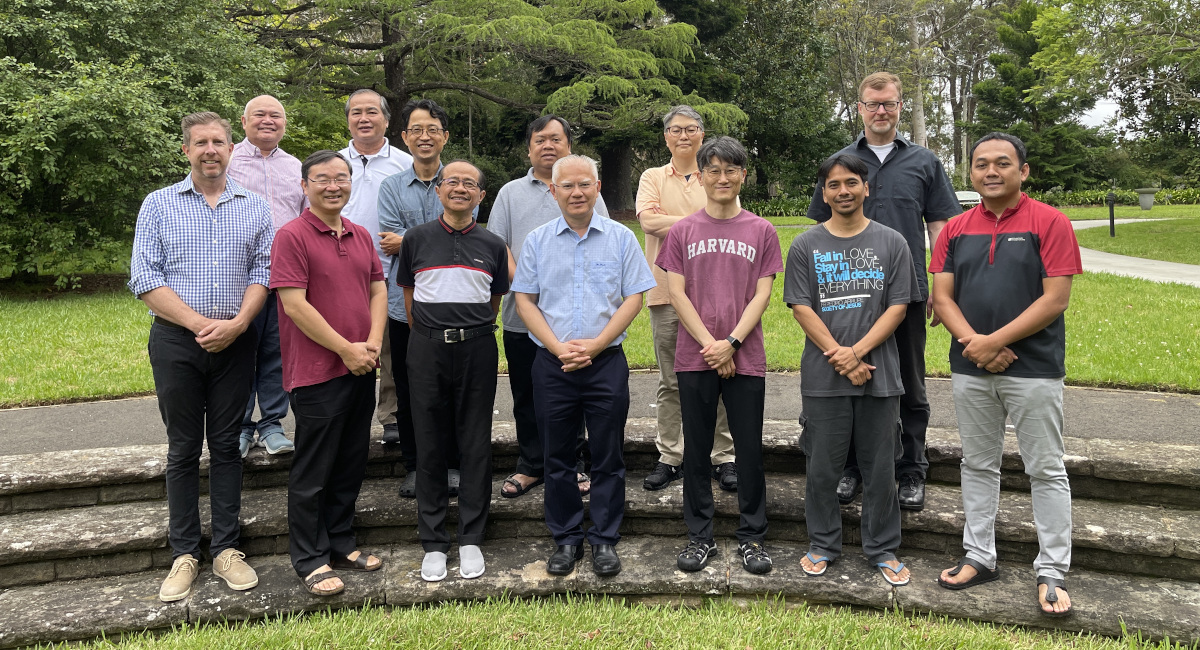It was a full week of rich sharing and learning for the Safety in Ministry network as they met face to face at St Peter Canisius House in Pymble, New South Wales from 22 to 28 January.
The participants, mostly safeguarding delegates, from the Philippines, Malaysia-Singapore, Vietnam, Thailand, Korea, Japan, Chinese Province, Cambodia, Australia, and Indonesia shared their experience in safeguarding work in their Jesuit provinces and regions.
A highlight of the meeting was learning from the experience of Australia, which is the only province in the conference with a fulltime lay person as safeguarding delegate, and with the most safeguarding systems in place.
“Their experiences and practices help me to make a better strategic plan for the safeguarding mission in my province,” said Fr John Lee Hua SJ from the Chinese Province.
Fr Hans Zollner SJ, one of the Catholic Church’s leading experts on the safeguarding and protection of minors and vulnerable people from sexual abuse, served as the resource speaker and very much deepened the learning of the delegates with his insights and reflections.
Fr Zollner spoke about the current state of safeguarding work in the Society of Jesus and in the Church. He also touched on the concern for emerging issues, in particular “adult-to-adult” abuses, which goes beyond sexual abuses to include power abuse and spiritual abuses, such as in the case of Fr Marko Rupnik SJ. Fr Zollner stressed the need for more vigilance in the Society in dealing with the issue of abuses head on.

The delegates also discussed the results of the audit conducted by the PCCP (Promoting a Consistent Culture of Protection) team in Rome, and how the data gathered can be used to guide the future work of safeguarding in the provinces.
Throughout the week, they spent time defining their role as safeguarding delegates, which resulted in the manifesto to the major superiors, where they ask for a dialogue in order
to level-off in terms of work and expectations. “This will help to ensure that safeguarding guidelines don’t remain a tick mark document but a spirituality and charism,” said Fr James Gascon SJ, Safety in Ministry Coordinator. The manifesto also calls for more “available” Jesuits and for convening a team, which includes lay persons.
In their discussions, they defined safeguarding work as consisting of both Case Management, and Promotion of Culture of Safety. The former is the responsibility of the major superior who is the official safeguarding officer of the province, while the latter is the responsibility of the delegate.
“The difference between safeguarding and case management, which involves intervention and investigation, was a significant learning point for me. Safeguarding should be a priority in our Jesuit formation,” said Fr Yulius Eko Sulistyo SJ from Indonesia.
Vietnamese Jesuit Fr Andrew Pham Van Tu SJ raised the need to pay better attention to the victims and their families, to accompany them, as well as to improve the protocols for dealing with Jesuits who have been accused of abuse.
Fr Dong-il Kim SJ from Korea is thankful for the practical things he learnt. “It was good to think of the role of the delegates. During the meeting, I was able to organise what I have to do. I am trying to prioritise them and push them one by one.”
He added: “Safeguarding itself is important, but I’ve learnt that many different areas need to be considered. I will think about how to make a difference in formation by stage, ministry, and community.”

